 Entertainment behemoths Walt Disney are planning on making hit TV shows like “Desperate Housewives” and “Lost” available as free Internet downloads in an initiative to haul in new advertising revenues.
Entertainment behemoths Walt Disney are planning on making hit TV shows like “Desperate Housewives” and “Lost” available as free Internet downloads in an initiative to haul in new advertising revenues.
A report in the Wall Street Journal says that the freebie will come with a sting: episodes of the ABC shows will contain commercial breaks that viewers will be forced to watch (until someone comes up with a ‘fast forward past this crap’ hack, of course.)
Episodes of the shows being offered will become available on the Web the morning after they’ve aired on TV.
With the Journal reporting that ten advertisers have already leapt on board – including heavyweights like Ford Motor Co., Procter & Gamble and Unilever – Disney hopes that the delivery of programs over the Web will turn into a right little earner.
 With digital video recorders like TiVo letting slogan-weary viewers fast-forward past the endless onslaught of adverts seen in the US, TV broadcasters are desperately trying to find ways to keep the advertising revenues rolling in.
With digital video recorders like TiVo letting slogan-weary viewers fast-forward past the endless onslaught of adverts seen in the US, TV broadcasters are desperately trying to find ways to keep the advertising revenues rolling in.
Disney are hoping that their ad-stuffed free service – expected to be announced later today by the president of the Disney-ABC Television Group, Anne Sweeney – will prove a hit with both consumers and advertisers.
 Punch ups in Disneyland
Punch ups in Disneyland
In a vaguely connected story elsewhere, we can report that Mickey Mouse’s chums are deeply unchuffed.
Or rather, the poor exploited workers lucky individuals on conveniently short contracts who get to wear the oversized heads and hands of Disney’s lesser characters at Hong Kong’s Disneyland.
It seems that they’re disgruntled with superstars like Mickey and Daffy earning extra wages despite them doing the same job (i.e. wearing a ridiculous costume and waving a lot).
The disgruntled employees have brought the union in, but we’re hoping it ends up in a fully costumed fight.
 After reporting Google’s
After reporting Google’s  Merrill Lynch analyst Lauren Fine predicted that, “Google’s increased market share and better monetisation of queries will lead to an increased share of ad dollars relative to competitors in the first half of this year.”
Merrill Lynch analyst Lauren Fine predicted that, “Google’s increased market share and better monetisation of queries will lead to an increased share of ad dollars relative to competitors in the first half of this year.”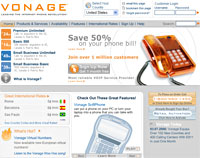 Voice over Internet Protocol (VoIP) is slowly but steadily creeping into American homes, with adoption up 20% since June 2005, and growing user satisfaction.
Voice over Internet Protocol (VoIP) is slowly but steadily creeping into American homes, with adoption up 20% since June 2005, and growing user satisfaction.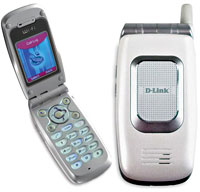 Only way is up
Only way is up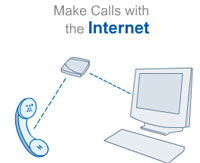 Early adopters to VoIP may recall the experience being akin to talking to a stuttering Dalek in an echo chamber, but the research revealed that 67 percent of VoIP users believe voice quality is now equal to traditional landline services, with 19 percent reckoning that internet calls sound better than those on wired phones lines.
Early adopters to VoIP may recall the experience being akin to talking to a stuttering Dalek in an echo chamber, but the research revealed that 67 percent of VoIP users believe voice quality is now equal to traditional landline services, with 19 percent reckoning that internet calls sound better than those on wired phones lines. The US mobile companies are finally, really getting hold of delivering content of all sorts to mobile phones.
The US mobile companies are finally, really getting hold of delivering content of all sorts to mobile phones. As with all things to mobile phones, we’d love to see the figures as to who actually pays for access to this. A barrier which has yet to be consistently cracked.
As with all things to mobile phones, we’d love to see the figures as to who actually pays for access to this. A barrier which has yet to be consistently cracked.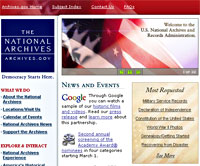 Google has struck up a partnership with the US National Archives to digitise their historic movie collection and provide free access to the public through their video search service.
Google has struck up a partnership with the US National Archives to digitise their historic movie collection and provide free access to the public through their video search service. “Our new strategic plan emphasises the importance of providing access to records anytime, anywhere. This is one of many initiatives that we are launching to make our goal a reality,” he added.
“Our new strategic plan emphasises the importance of providing access to records anytime, anywhere. This is one of many initiatives that we are launching to make our goal a reality,” he added.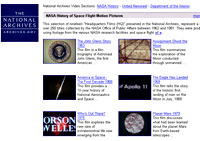 Happily, this was not the case, as a Google spokesperson explained: “Video uploaders, using Google Video’s ‘Advanced Options’ feature, can choose to blacklist countries. In this case the uploader blacklisted the US and only the US. When uploading the video the content owner set a preference not to show this content to users in the US.”
Happily, this was not the case, as a Google spokesperson explained: “Video uploaders, using Google Video’s ‘Advanced Options’ feature, can choose to blacklist countries. In this case the uploader blacklisted the US and only the US. When uploading the video the content owner set a preference not to show this content to users in the US.” Wikinews, the collaborative online journalism project spawned from Wikipedia, has been digging up more dirt on the Wikipedia edits made by Capitol Hill staffers.
Wikinews, the collaborative online journalism project spawned from Wikipedia, has been digging up more dirt on the Wikipedia edits made by Capitol Hill staffers.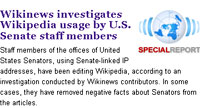 Hot on their trail, the meticulous volunteers at Wikinews collected every Senate IP which had ever been edited on Wikipedia (up to February 3) and examined where the IPs came, what was edited and what the edits comprised of.
Hot on their trail, the meticulous volunteers at Wikinews collected every Senate IP which had ever been edited on Wikipedia (up to February 3) and examined where the IPs came, what was edited and what the edits comprised of.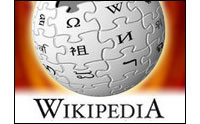 Open, collaborative information projects like Wikipedia and Wikinews have been welcomed by Internet activists keen to make unbiased information freely available, but the very nature of the project makes it wide open to abuse (as one pundit commented, “The information on your screen may be only as good as the most recent users’ motives.”)
Open, collaborative information projects like Wikipedia and Wikinews have been welcomed by Internet activists keen to make unbiased information freely available, but the very nature of the project makes it wide open to abuse (as one pundit commented, “The information on your screen may be only as good as the most recent users’ motives.”) Inga Chernyak, until recently, had a legal clerk job at an IP law firm in New York City. On the 26 January she was called in to the firms HR department and fired.
Inga Chernyak, until recently, had a legal clerk job at an IP law firm in New York City. On the 26 January she was called in to the firms HR department and fired. There may be those who think that it’s pretty obvious that is you work in an IP firm; wanting to train as an IP lawyer; you hold views that IP law is over restrictive; then have your name and photo featured in an article that starts by describing how to circumvent CD DRM protection and are a founder of NYU chapter of the Free Culture movement – you’re going to end up in trouble said IP law firm.
There may be those who think that it’s pretty obvious that is you work in an IP firm; wanting to train as an IP lawyer; you hold views that IP law is over restrictive; then have your name and photo featured in an article that starts by describing how to circumvent CD DRM protection and are a founder of NYU chapter of the Free Culture movement – you’re going to end up in trouble said IP law firm.  Seven branches of the already-wireless central Seattle library are going WiFi. The
Seven branches of the already-wireless central Seattle library are going WiFi. The  Neither report, it seems, is talking of the inevitable spectrum conflict looming as domestic WiFi proliferates, and City WiFi spreads through the same areas.
Neither report, it seems, is talking of the inevitable spectrum conflict looming as domestic WiFi proliferates, and City WiFi spreads through the same areas.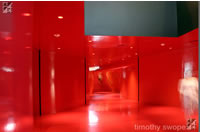 “There is a long queue of companies waiting to undergo the same certification process. Then, they can proceed to ‘wave 2’, covering security and quality-of-service, and when they too are certified, we can expect to see larger numbers of products actually reaching the market,” was one comment. But Solis added:
“There is a long queue of companies waiting to undergo the same certification process. Then, they can proceed to ‘wave 2’, covering security and quality-of-service, and when they too are certified, we can expect to see larger numbers of products actually reaching the market,” was one comment. But Solis added: A huge photograph of the Orion Nebula taken by the Hubble Space Telescope has been released on the Internet. It is thought to be one of the largest images every produced.
A huge photograph of the Orion Nebula taken by the Hubble Space Telescope has been released on the Internet. It is thought to be one of the largest images every produced. Around two years ago the previous version of this image was also distributed online, but that was a ‘mere’ 6,200 x 6,200, at that time, also claimed at the ‘largest image ever’.
Around two years ago the previous version of this image was also distributed online, but that was a ‘mere’ 6,200 x 6,200, at that time, also claimed at the ‘largest image ever’.